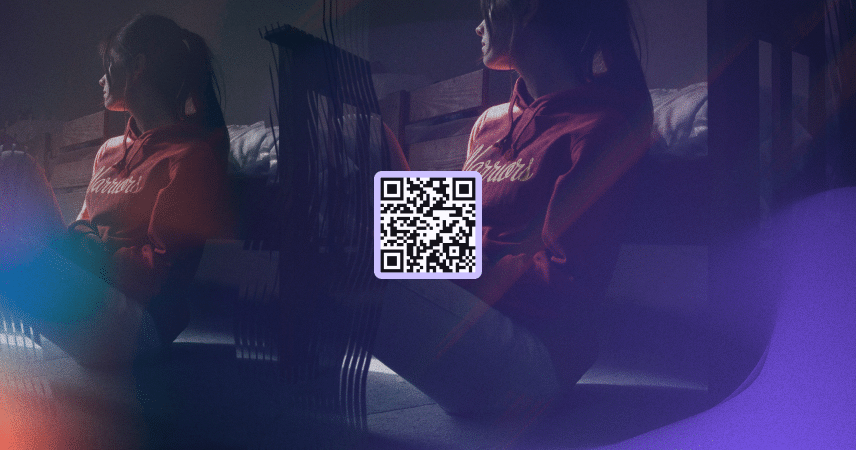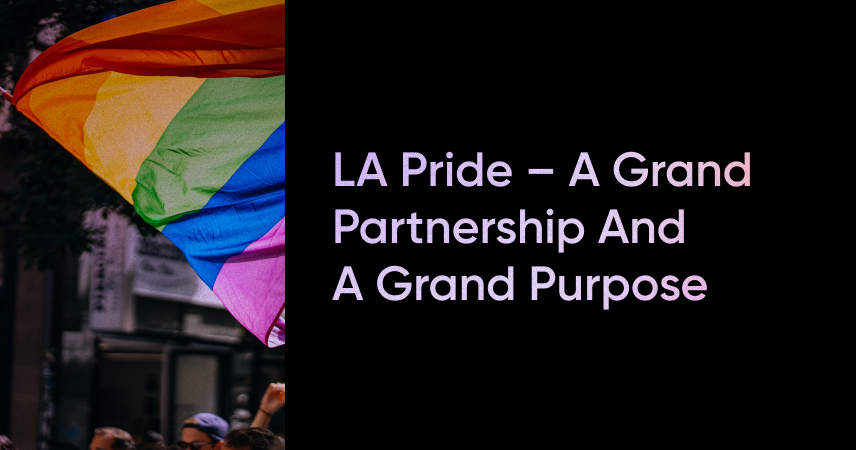Myths & Truths about Asexuality + Sexual Trauma

April is both Asexual Awareness Month and home to National Asexuality Day (April 6th). As an asexual person and a survivor, I felt it was the right time to address some of the most common myths about ace identity and sexual trauma.Being open about both my asexuality and my journey through sexual trauma recovery has been important to me. But one of the most frustrating aspects of this openness is the assumptions people make — particularly the belief that my ace identity must be a direct result of the sexual assault I’ve experienced. This blog post exists to challenge that misconception and explore the nuanced relationship between asexuality and survivorship.
Please note- this article is not in reference to caedsexual individuals. Caedsexual is a sexual orientation that is found in the asexual spectrum. It refers to people who believe that at some point they were alosexuals, but that this was taken away or “eliminated” due to a trauma from the past. That is a valid orientation and experience, but this article focuses on aces whose orientation is not the result of trauma they have endured.
Defining Asexuality
I always start my blog posts about asexuality with definitions—this ensures that readers are on the same page and aligned throughout the piece.Asexuality is an umbrella term for people who do not experience sexual attraction. While the asexual spectrum includes many identities, we’ll stick with the broader definition for simplicity.One key distinction that often gets overlooked is the difference between libido and sexual attraction.
- Libido refers to a desire for sexual activity, whether with a partner or solo (masturbation).
- Sexual attraction is an innate pull toward others in a sexual way.
Some aces have a high libido but don’t experience sexual attraction. They may engage in sex to satisfy physical needs without feeling attraction to their partners. Many aces with high libidos prefer solo sex, as it can feel more personally fulfilling—centered on physical release rather than connection or attraction. It’s quite common for aces to enjoy solo sex and not enjoy partnered sex. Other aces may not engage in sex of any kind (partnered or solo) either due to a lack of libido, or simply because they have no interest in the experience because of their lack of sexual attraction. Defining Sexual Assault + Trauma Sexual assault happens when someone touches another person in a sexual manner without their consent, or makes another person touch them in a sexual manner without their consent. Defining Consent Consent simply means permission to do something, or permission for something to happen.
How Many Aces Experience Sexual Assault?
One of the biggest issues with conversations around consent is the lack of nuance. We need to acknowledge that consent is not always freely or enthusiastically given—that sometimes, a “yes” is the result of pressure, shock, obligation, habit, or fear.I’m going to make a bold statement: Many aces have experienced sexual assault.
Why? Because sex is taught as something necessary, obligatory, vital, and defining within romantic relationships.
- Sex is deemed necessary because it enables procreation—without it, humanity wouldn’t exist.
- Sex is deemed obligatory in romantic relationships because it’s framed as a “need” rather than a desire.
- Sex is deemed the pinnacle of connection because it’s described as “the closest you can be with another person.”
- Sex is equated with self-worth — many people believe, “If someone doesn’t desire you sexually, you are worthless.” They tie their value to their sexual desirability, and when someone they’re attracted to rejects them, they internalize it as proof that they are unworthy of love.
Culturally speaking, sex is never actually presented as optional.
Because of this, many aces don’t realize they are asexual — sometimes for years — because asexuality is rarely presented as a valid possibility or way of life. Many aces experience romantic, sensual, or emotional attraction at an early age. They may love kissing or cuddling or showing affection. Some have high libidos and actively engage in solo sex, but when it comes to partnered sex, they lack the language to express that they aren’t sexually attracted to others, or why they don’t have that urge that their peers do.
Many asexual people have given in to sex they didn’t want because their partner felt rejected, and they wanted to make them happy.
Many aces — myself included — have been in relationships with people we genuinely adored, had crushes on, and enjoyed spending time with. But when it came to sex, we were pressured. Our “no,” “wait,” or “not right now” was often ignored. Many aces concede to sex simply because their partners insist, or because “no” isn’t accepted as an answer. Many are told something is wrong with them when they express a lack of sexual desire. Some are lectured about the health benefits of sex or guilted into believing that “denying” a partner sex is cruel.
Many asexual people are deeply sensual and romantic, yet they are called a “tease” when they decline sex.
Because of how sex is framed in our culture, many aces don’t get the chance to question their lack of sexual attraction. Instead, they become hyper-focused on trying to fix something that was never broken.
The reality is, many aces don’t realize they are asexual until long after they have experienced sexual assault. Many don’t even recognize it as assault until years later, because sex within romantic relationships is framed as “natural” and as a requirement for maintaining a relationship.
The AHA moment: Understanding your asexuality vs your trauma
Then comes the AHA, freeing moment — the moment when you finally have the language to articulate your sexuality. You realize you’re asexual, not broken, and that the way you experience attraction is completely normal, even if it differs from the majority of the population.You begin to understand why you gave in to something you didn’t truly want. You understand why you get butterflies when it comes to your crushes—but the moment flirting turns sexual, you feel the ick. You understand why solo sex feels euphoric, like floating on the moon, while partnered sex feels like a chore — something to get over with. For the first time, you start to make sense to yourself.
When I learned I was an ace, it was incredibly freeing. But that freedom was immediately met with bold, assumptive commentary like:
- “It’s because of your experience(s) with sexual assault.”
- “You just haven’t had a good experience with sex.”
- “That’s probably just a trauma response”
So, to my fellow aces, I want to empower you with language to combat this grotesquely flawed myth:Any sexual assault you have experienced was the result of your no not being respected or accepted—whether that was a soft no, a hard no, your partner giving you the cold shoulder until you gave in, or anything in between. Your asexuality—your lack of sexual attraction (which often manifests as a lack of desire for sex with your partner)—was always present. It was the reason for your hesitation, your discomfort, your “no.”Your asexuality did not cause the trauma. Their response to your “no”, did.
Conclusion:
To my fellow aces — whether you are newly discovering your identity or have known it for years — I want you to know this: You are not broken. Your asexuality is not a wound to be healed, nor a symptom to be explained away. It is simply the way you are, the way you have always been.Your hesitations, your discomfort, your lack of sexual attraction—those were never the problem. The problem was a world that refused to listen, a culture that equated sex with love, and people who saw your “no” as something to negotiate rather than respect.Healing from trauma/experiences with sexual assault is a deeply personal journey, and for many of us, understanding our asexuality is a part of that process. But we do not owe anyone an explanation, and we certainly do not need to prove our existence.Your identity is yours to own, to celebrate, to hold with pride. Whether you are loud about it or quiet, whether you choose to share it with the world or keep it close to your heart — know that you are valid, whole, and enough exactly as you are.



